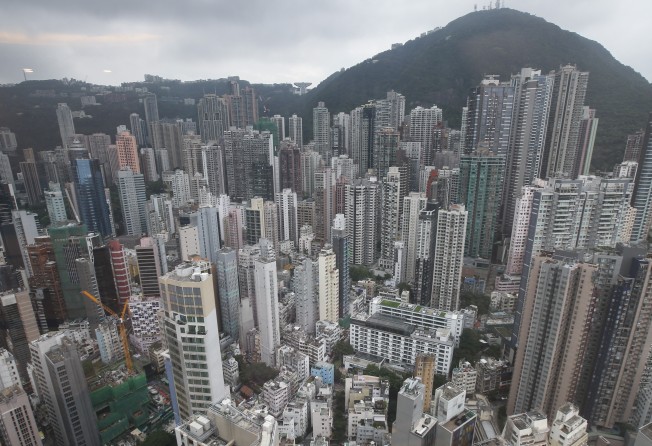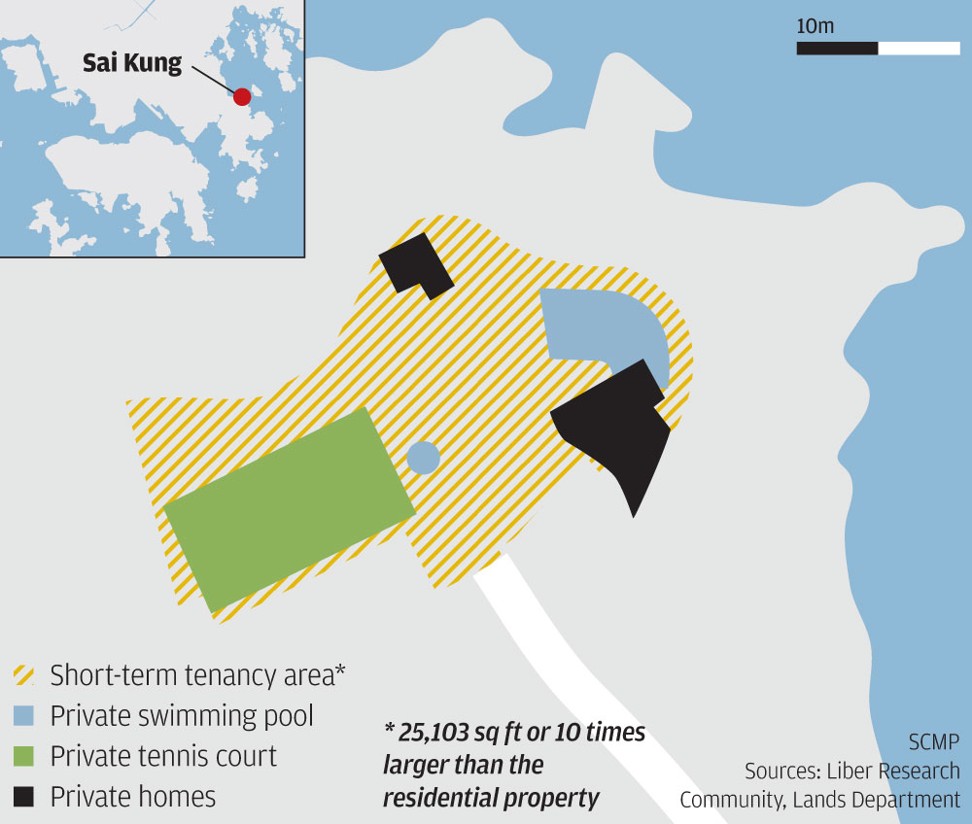Government accused over opaque Hong Kong land deals which ‘subsidise the wealthy’
Group says public knowledge of the short-term leases, which do not disclose the rent paid, ‘only the tip of the iceberg’

A group of urban planning advocates has accused the government of letting Hong Kong’s super-rich expand their property by building private swimming pools and tennis courts on public land leased to them at undisclosed prices through an opaque system of short-term deals.
The Liber Research Community said on Tuesday that its findings were “only the tip of the iceberg”, and called for greater transparency to prevent abuse of the system.
At least three hectares of government land – about the size of three soccer pitches – is leased out through 31 short-term rental contracts, and home to 23 private swimming pools and eight private tennis courts, according to a study by the group.
Using Google satellite images, land records and site inspections, the researchers examined traditional low-density luxury residential areas such as Mid-Levels on Hong Kong Island, Kowloon Tong in Kowloon and Sai Kung in the New Territories.
In one case, the government had leased a plot of land to the owner of two houses in Sai Kung at below market rate, to build two private swimming pools and a tennis court. The land surrounded the two houses, covering 10 times their area.
The owner of the property revealed in a newspaper interview in 2013 that the monthly rent for the 25,103 sq ft site was HK$33,000 a month, or just HK$1.6 per sq ft.
In comparison, a short-term rental for a plot of farmland in the New Territories put up via public tender cost 10 times that, at HK$16.8 per sq ft, official records showed. A property advertisement valued the villa at HK$140 million.
The Liber group’s researchers said the government’s short-term tenancy policy tended to favour the rich.
“With this policy, owners can increase their living space by renting government land at a cheaper rate, instead of building on their own land. But why should public resources be used to subsidise their wealthy lifestyles?” researcher Yeung Ha-chi said.
The study comes as authorities face intense public pressure to boost land supply to ease the housing crunch. Developing sites leased out via short tenancies is one of the 12 ways identified by a new government-appointed task force to ramp up land supply.
Government statistics show there are 5,300 short-term agreements to lease out public land, covering 2,400 hectares in total. Hong Kong International Airport accounts for 60 per cent of that land total.
One third of the agreements, which only account for 37.4 hectares of the land, cover sites used as private gardens. The rest are used for public housing, railway projects, car parks, recycling workshops and public utilities such as electricity substations and bus depots.
Short-term rental contracts normally last five years, but Google satellite images show that some swimming pools have been built on the plots since 2000, despite records of the property changing hands since then.

It was not clear if the contracts were renewed with previous owners, which is possible with all short-term leases, or the government signed a fresh deal with the new owners.
The researchers urged the government to make a public database of all short-term rental agreements, and to make clear how it decides whether to put contracts up for public tender or direct application.
This is only the tip of the iceberg
“This is only the tip of the iceberg. We have no way of knowing how many of these short-term rentals are used for what purposes or rented out at what price levels,” researcher Chan Kim-ching said. “The whole system is a black box.”
Lee Wing-tat, chairman of policy think tank Land Watch, said the biggest problem with the short-term rents was a lack of transparency in the way the Lands Department struck deals.
“The policy gives the Lands Department an arbitrary power to lease out the land to whoever it wants without the public being able to hold them accountable for it,” Lee said.
He said some of the deals were reasonable because the plots attached to the private residences were remote and inaccessible and could never be put to public use. But he said there was no way of knowing what cases were acceptable if the information was unavailable.
He suggested the government publish a list of contracts going back 20 years or more to the Legislative Council’s development panel for scrutiny.
